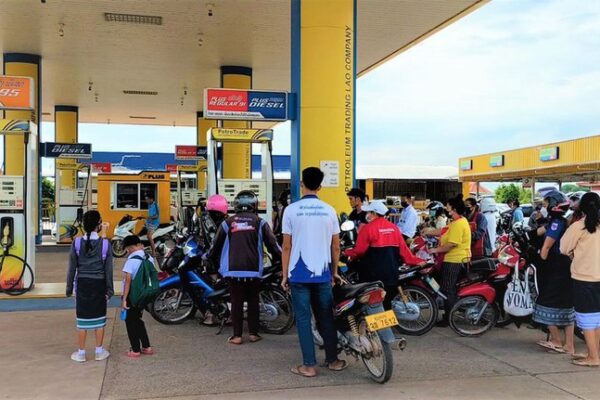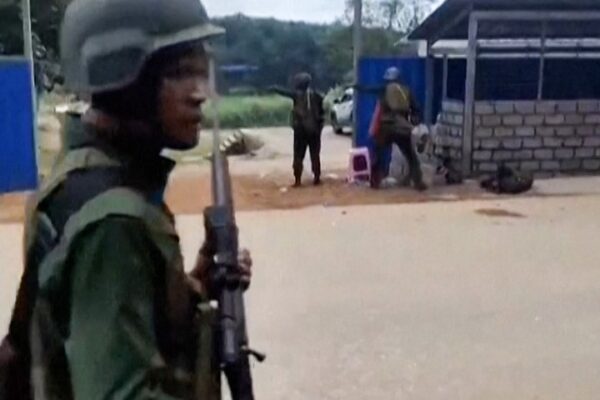Ethnic armed alliance captures 3 cities on China-Myanmar border
Allied ethnic armed groups captured three cities in northeastern Myanmar in a six-day battle, a representative of one of the groups told Radio Free Asia on Thursday. Junta troops were forced to abandon their posts on Friday when allied soldiers attacked three cities in northern Shan State, the military confirmed in a statement released Wednesday. The Ta’ang National Liberation Army, Myanmar National Democratic Alliance Army and Arakan Army gained control of the cities in an operation called 1027. Fighting took place in several townships until Monday, when the military gave up the cities of Chinshwehaw, Hpawng Hseng and Pang Hseng near the China-Myanmar border, according to junta spokesman Maj. Gen. Zaw Min Tun. “Here we see all kinds of propaganda that almost all the cities in northern Shan state have been controlled [by ethnic armed groups], and about where they will continue after that,” he said on junta-controlled television channel MRTV. “At this time, there are places where our government and administrative organizations and security forces have failed.” The northern allied groups have started implementing administrative systems, Myanmar National Democratic Alliance Army spokesperson Yan Naing told RFA. “Right now, we have full control over Chinshwehaw and Hpawng Hseng. The administrative mechanisms have been restored,” he said. “Chinshwehaw township was reformed by our administrative team. We are working to restore electricity and everything. We are working hard to make people’s lives comfortable.” Myanmar National Democratic Alliance Army forces gained control of Theinni on Friday, but have not yet been able to seize the military’s camps on the other side of the town, he added. The group seized Hpawng Hseng on Monday and Pang Hseng in Muse township on Wednesday. The alliance claimed they captured nearly 90 junta army bases during the battle, but RFA has not been able to independently confirm this number. Conflict in Pang Hseng ended on Wednesday afternoon, said a local woman asking to remain anonymous for fear of reprisals. “Now, the situation has gone quiet. We stay at home and do not dare to go anywhere. If people go to market, they trade early in the morning and return home,” she said. “I heard the sounds of gunfire and small ammunition yesterday evening, not the heavy artillery anymore. If the sounds of heavy weapons are close, we run to the houses with basements.” During a routine briefing on Thursday, China’s foreign affairs ministry spokesperson Wang Wenbin called for an immediate ceasefire. China tightened border security when the fighting began, locals said. “The Chinese side opens the gate if there is an emergency patient, but it is said that the war refugees are not allowed to get in,” the woman from Pang Hseng said. RFA contacted the Chinese Embassy in Myanmar, but did not receive a reply by the time of publication. Translated by RFA Burmese. Edited by Mike Firn.






